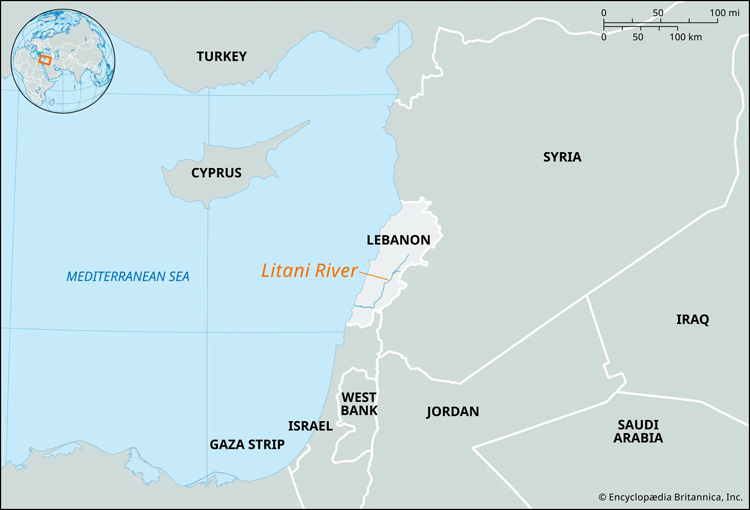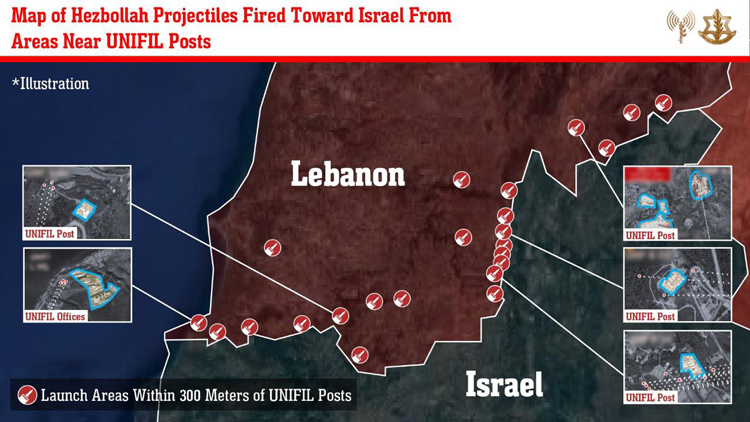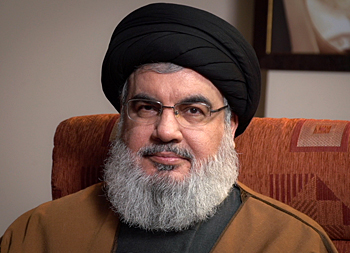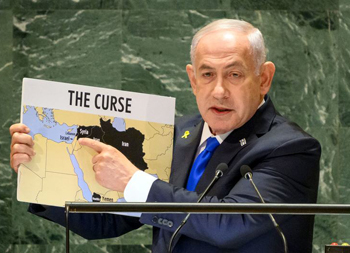INDIAN ARMED FORCES CHIEFS ON OUR RELENTLESS AND FOCUSED PUBLISHING EFFORTS

The insightful articles, inspiring narrations and analytical perspectives presented by the Editorial Team, establish an alluring connect with the reader. My compliments and best wishes to SP Guide Publications.

"Over the past 60 years, the growth of SP Guide Publications has mirrored the rising stature of Indian Navy. Its well-researched and informative magazines on Defence and Aerospace sector have served to shape an educated opinion of our military personnel, policy makers and the public alike. I wish SP's Publication team continued success, fair winds and following seas in all future endeavour!"

Since, its inception in 1964, SP Guide Publications has consistently demonstrated commitment to high-quality journalism in the aerospace and defence sectors, earning a well-deserved reputation as Asia's largest media house in this domain. I wish SP Guide Publications continued success in its pursuit of excellence.
Litani's Litany of Woes
Lebanon, marked by decades of conflict, foreign occupation, internal strife, and the current influence of Hezbollah, has rendered the state dysfunctional. Despite brief periods of peace, Lebanon's challenges persist, driven by regional power struggles, radical militias, and external interventions.
 |
The Author is former Chief of Staff of a frontline Corps in the North East and a former helicopter pilot. He earlier headed the China & neighbourhood desk at the Defence Intelligence Agency. He retired in July 2020 and held the appointment of Addl DG Information Systems at Army HQ. |

Litani is back in focus. I had a tryst with Litani when in August 2001, the Army HQs selected me for a UN assignment as the Chief Humanitarian Officer in UNIFIL. Litani river largely defined the northern operational boundary for UNIFIL. In November we flew in a UN chartered Cambodian airliner to Beirut via Dubai. Landing past mid night, my course mate who was finishing his one-year stint picked me up from the swanky newly built airport and we set out for the UNIFIL HQs in Naqoura, far to the South bordering Israel. As we drove out in his regulation UN Toyota Forerunner I had made one request. I wanted him to show me the Litani River that we would cross along the route. Litani is the longest river in Lebanon, exceeding 140 km in length and empties into the Mediterranean Sea north of Tyre, a city barely 20 miles north from the UNIFIL HQs in Naqoura. Later, I made Tyre my home when my family joined me for the summer vacations. Alas, the sea-facing apartment building where we stayed was razed to the ground during the Israeli onslaught in 2006.
Civilian strife amongst complex population demographics
Peace had returned to Lebanon after decades of Israeli occupation lasting from 1982-2000 and savage internal wars between Muslim and Christian militias like the Hezbollah and the South Lebanese Army (SLA) had left many open wounds. There was a fresh air of hope as massive aid flowed in from its former colonial power France and many rich middle-east donors like Saudi Arabia, UAE and Qatar. In peaceful times, Lebanon is as close to paradise as we can hope to experience, a country with rich history and culture. Largely mountainous with the languid deep blue Mediterranean Sea softly slapping its pink limestone outcrops, one can drive from the port city of Beirut to the ski resort Faraiya in under an hour! The serene Beka Valley sits at 3,000 feet between Mount Lebanon and Anti Lebanon, famous for its vineyards. Lebanese proudly claim that they make better wine than the French, their former colonial masters, using only freshly made oak casks for fermenting the wine unlike some French vintners.
The 2006 ceasefire emboldened Hezbollah. Since then, it has exercised outsized influence over the polity of Lebanon making the state and its apparatus largely dysfunctional
However, along with all this nature's gift, Lebanon has a curse too, a complex population mix. In 1932 when Lebanon was still under French mandate, 51 per cent of the population was Christian. The rest composed of Sunnis, Shiites and Druze alongside other minorities. As years went by, the Muslim population increased faster and Christians were reduced to a minority. The PLO had become very oppressive on the Christian residents in South Lebanon after they set up multiple camps in Lebanon post expulsion from Jordan in 1970. A long civil war (1975-90) saw between 6,00,000 to 9,00,000 Christians migrating abroad. Israel invaded Lebanon in 1978 and pushed the PLO fighters to the north of Litani. The Israeli occupation of South Lebanon (1985-2000) to maintain a safe buffer zone between them and the PLO located to the north of River Litani led to a vicious test of strength between Hezbollah and Israel backed Christian South Lebanese Army. Finally, in May 2000, Israel withdrew under UN brokered peace deal and set up the heavily patrolled Blue Line.
A dysfunctional State under Hezbollah's influence
Lebanon has tumbled from crisis to crisis since. In July 2006, Hezbollah fighters launched a cross-border attack kidnapping of a pair of Israeli soldiers and killing eight others, almost similar to the Hamas raid of October 7, last year. Israel had then launched a massive air operation, bombing Hezbollah headquarters and rocket stockpiles in Beirut and militia positions and destroyed most of Hezbollah's Iranian-made Zelzal long-range rockets. However, they failed to stop the relentless rocket attacks on northern Israel. The hostilities came to an end on August 14, 2006 with a UN brokered ceasefire. However, Hezbollah's ability to fight the IDF to a stalemate that no other Arab militia had accomplished, allowed it to claim victory.

The 2006 ceasefire emboldened Hezbollah. Since then it has exercised outsized influence over the polity of Lebanon making the state and its apparatus largely dysfunctional. Lebanon doesn't have a fully functional government since 2020. While the country was in the grips of COVID pandemic, a massive but mysterious explosion on August 4, 2020 ignited warehouses in the Beirut port storing ammonia nitrate and killed 218, injured 7,000 and left more than 3,00,000 people homeless. Then Gaza erupted, opening a golden opportunity for Hezbollah to flex its muscles.
Since the October 7, 2023 early morning raid by Hamas terrorists which killed over 1,200 civilians and took some 450 hostages, Hezbollah, pumped up by Iran, has been firing salvos of rockets intermittently to demonstrate support for Hamas
The hard times are back again. Since the October 7, 2023 early morning raid by Hamas terrorists which killed over 1,200 civilians and took some 450 hostages, Hezbollah pumped up by Iran as well as to pander to its thousands of restive cadres, has been firing salvos of rockets intermittently to demonstrate support for Hamas. Taking cover of civilian homes, schools and hospitals in densely populated town and villages of South Lebanon, Hezbollah has waged a low cost war of attrition thus far while the IDF concentrated on Gaza, fighting through one tunnel at a time, eliminating one Hamas leader after another.
A year on, the Hamas top leadership has been obliterated including its Chief Ismail Haniyeh in Teheran. His successor, Yahya Sinwar is already in its crosshairs. Most of Gaza has been reduced to rubble as the IDF discovered and destroyed Hamas command centres located inside hospitals, schools, refugee shelters and residential buildings, linked through hundreds of miles of fortified tunnels swarming with deadly weapons, explosives and rockets.
Sitting on a Tinderbox
Since September 23, Israel has shifted its gaze north and relentlessly bombed Lebanese towns and cities by fighter aircrafts and missiles after the pager blow-ups on September 17 which grievously injured 3,000 Hezbollah cadres. While the IDF targets Hezbollah leadership, its rocket sites and munition warehouses, it is easy to be swayed by the media images chronicling the tragic collateral, of hundreds of innocent Lebanese civilians including women and children killed, their homes and lives destroyed. There are bound to be an overwhelming reaction of exasperation and condemnation. Yet, Israel continues undeterred, fighting for its survival as a country and as a people.

Hassan Nasrallah, the leader of the militant Hezbollah organisation in Lebanon for more than three decades, is dead. The end came in as dramatic fashion as the person himself. Visuals from the UN HQs on September 26 had captured Israeli Prime Minister Benjamin Netanyahu giving last minute instructions over a secure scrambled telephone, possibly a go ahead for a planned missile strike to his IDF commanders, before he entered the UN General Assembly to deliver what transpired to be a very stern address. Netanyahu minced no words while reminding the world of the over 8,000 rockets fired over past year by Hezbollah without provocation, forcing some 60,000 residents of the Israeli settlements bordering Lebanon to flee south for safety.
With the death of Nasrallah and his successor Hassan Khalil Yassin in quick succession, almost the entire top hierarchy of Hezbollah has been wiped out along with their Iran Revolutionary Guards advisors who were stationed in Damascus as well as Beirut. For Israeli residents of towns bordering Lebanon to return to their homes, it is vital that the Hamas rocket barrages must cease. Israel hopes to see South Lebanon, area between the Israel Blue Line and the Litani river, as a buffer zone. Such a scenario is feasible only if Hezbollah is compelled to relocate its arsenal and fighters to north of the Litani.
The tragic slide of Lebanon from the heights of prosperity in the sixties when Beirut was being referred to as the 'Paris of the East' to the shocking chaos that prevails today is tragic

The tragic slide of Lebanon from the heights of prosperity in the sixties when Beirut was being referred to as the 'Paris of the East' to the shocking chaos that prevails today is tragic. The unfettered rise of radical jihadi militias in the region have primarily been responsible for this slide. The death of Nasrallah may provide a window for recalibrations by all sides including Hezbollah's Iranian backers. The Houthis will also get some concerted attention from Israel and the US to come to its senses and understand its limitations. The state of Lebanon deserves a regular government at the helm to work on rescuing its broken economy and even more broken society. For Iran, the killing of Nasrallah is a grim reminder, as if a reminder was necessary at all, that none of its leadership can sit safe and smug in their homes and offices and run terror outfits in the middle-east with delusional agendas. Its Supreme Leader has been moved to some safe house, ducking under fear. Iran's missile attack of October 1, is awaiting a response from Israel, its nature and scale causing much world-wide anticipation as we come as close as it gets to a nuclear holocaust.
The Global Implications
One major problem that confronts the civilised world is that all these radical militias hardly have any respect for the safety, wellbeing and life of their own citizens. They take shelter in densely packed residential neighbourhoods and locate their operational centres and weapon command posts inside hospitals, schools and mosques, inviting collateral damage which further whips up passions. Given the rise of woke cultures in university campuses across the Europe and the US and the ostrich like mentality of many governments, it is an uphill task for Israel to take on all these rogue organisations by itself. The Abraham Accords that helped normalise relations between Israel and three Arab nations, UAE, Bahrain and Sudan, hopefully will again gain traction after the November US presidential elections and bring more robust Arab-Israel reconciliation. Litani's litany of woes may finally be coming to an end.
The Abraham Accords that helped normalise relations between Israel and three Arab nations, UAE, Bahrain and Sudan, hopefully will again gain traction after the November US presidential elections and bring more robust Arab-Israel reconciliation
India has been a victim of cross border terrorism for over three decades and witness to sectarian strife right from the pre-independence days leading to partition and thereafter. But owing to vested interests and vote bank politics, resolute action to bring order to the society and polity has been on the backburner leading to the exodus of Kashmir Pandits from the Kashmir valley in the nineties. The dangers of unchecked infiltration by Rohingyas and Bangladeshis infiltrated by radicals, some with suspected Islamic State linkages, can exacerbate an already sensitive situation. The numerous riots, knife attacks and arson in many European capitals, cities and town, especially in the UK, Germany, France, Belgium, Netherlands and Sweden is a grim reminder to the world about the lurking dangers. The inferno that has lit up the middle-east must make multi-cultural liberal democratic societies to sit up and take note.





